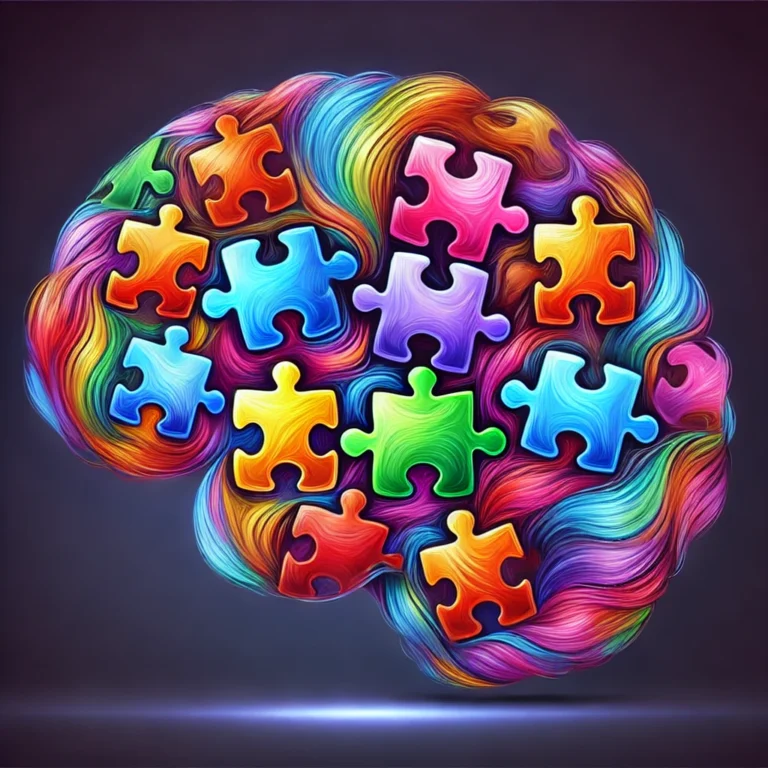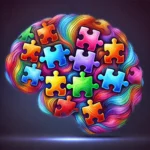Have you ever felt like you were playing a game where you didn’t know the rules, but everyone else seemed to?
Maybe you’ve been in a meeting where people seemed to understand the unspoken expectations or in a classroom where some students just “fit” without trying. If so, you’ve brushed up against the invisible structures that shape everyday life — structures that sociologist Pierre Bourdieu spent his career trying to map.
While Bourdieu’s work mainly focused on class, education, and culture, his concepts also offer a powerful lens for thinking about other social divides, including the experiences of neurodivergent people in a world built for neurotypicals.
While researching Bourdieu’s theories extensively for my PhD thesis, I couldn’t help but notice the striking parallels between Bourdieu’s understanding of social inequality and the often-hidden barriers faced by neurodivergent individuals. As someone who is also neurodivergent, though not writing from an activist standpoint, these connections felt too important to ignore.
By looking at concepts like capital, habitus, fields, symbolic power, and symbolic violence, we can see how neurodivergence isn’t just a medical label — it’s also a social experience shaped by invisible forces that reward some ways of being and disadvantage others.
Capital, Privilege, and the Neurotypical Advantage
Bourdieu argued that success in society isn’t just about money — it’s about having the right kinds of capital (Bourdieu, 1986)1. He described several forms:
- Economic capital (money, assets)
- Cultural capital (knowledge, behaviours, tastes)
- Social capital (networks and relationships)
- Symbolic capital (prestige, respect, honour)
In a world dominated by neurotypical norms, neurotypical behaviours are treated as valuable forms of cultural and social capital. Quick verbal responses, easy small talk, understanding subtle body language, adapting fluidly to shifting social cues — all these skills are prized and rewarded across many fields. By contrast, many neurodivergent traits — such as direct communication, literal thinking, sensory sensitivities, or difficulty with unspoken expectations — are undervalued or even penalised.
Consider a common example: job interviews. Quick rapport, confident eye contact, and polished small talk often carry as much weight as technical skills. The candidate who instinctively navigates these unwritten social expectations accumulates symbolic capital simply by "appearing right," regardless of their substantive ability.
Meanwhile, neurodivergent candidates — who may have exceptional technical abilities — can find themselves overlooked because they don’t match the expected social style.
As Coleman (1988)2 noted, social capital — the ability to build networks of trust and mutual support — is a crucial asset in education and professional life. Robert Putnam (2000)3 later expanded this idea, arguing that declining social capital weakens communities. For neurodivergent individuals, social capital is often harder to build in the first place — not due to lack of willingness, but because the expected rules of engagement feel alien or inaccessible.
This matters because recognising which traits are socially rewarded — and which are not — is the first step toward understanding the systemic barriers neurodivergent people face.
Key Ideas:
- Neurotypical traits have been historically institutionalised as valuable capital.
- Neurodivergent traits are often socially invisible or devalued, regardless of their intrinsic worth.
Habitus: Why Fitting In Isn’t Just About Effort
If capital is about what you have, habitus is about who you are. Habitus, according to Bourdieu (1977)4, is the set of dispositions — ingrained habits, ways of thinking, and acting — that feel natural to us but are shaped by our social environment.
For neurotypical individuals, the dominant social habitus often matches the expectations of schools, workplaces, and public life. They have an intuitive sense of when to speak, when to stay quiet, how to frame themselves socially, and what kinds of ambition are "appropriate."
For many neurodivergent people, however, there is a constant mismatch between their internal habitus and the external expectations around them. Take school settings, for example. Many autistic children, for instance, may prefer deep focus over rapid task-switching or direct honesty over polite ambiguity. Yet these traits are often misinterpreted as misbehaviour or awkwardness in a classroom setting structured around group work, social performance, and flexible multitasking.
Diane Reay's (2017)5 work on working-class children in education shows how a mismatch between habitus and institutional expectations produces a quiet but powerful form of exclusion. Children whose home habitus doesn’t align with the school’s middle-class norms are subtly positioned as "less capable," even when they have equal potential.
In much the same way, neurodivergent individuals often internalise the feeling that they are "wrong," even when they are simply operating with a different — but equally valid — set of instincts and responses.
Key idea:
- When your habitus doesn’t fit the dominant field, you are made to feel like an outsider, no matter your abilities.
Fields: Where the Game is Already Rigged
Bourdieu described fields as social arenas — like education, work, art, or politics — each with its own rules, hierarchies, and definitions of success (Bourdieu, 1984)6. In each field, different forms of capital are valued differently. Critically, each field tends to be shaped by the habitus of those already dominant within it.
Most mainstream fields are designed around neurotypical expectations:
- In education, success often depends on timed exams, group participation, and unstated social norms.
- In workplaces, success often depends on teamwork styles, unwritten office politics, and flexible multitasking.
These fields reward certain types of communication, emotional expression, and sensory processing — ways of being that align more closely with neurotypical habitus. Neurodivergent individuals often find themselves penalised for not conforming to the hidden rules of the field, even when they are equally or more capable in the substantive tasks required.
For example:
- An autistic person who processes questions carefully and answers thoughtfully may be judged as "slow" compared to a quick-talking but less thoughtful peer.
- A person with ADHD might produce brilliant bursts of creativity but struggle with long, repetitive meetings — and be seen as "disorganised."
These misalignments are not due to personal failures. They are symptoms of fields designed for certain kinds of bodies and minds — and quietly hostile to others.
Key idea:
- Fields reward neurotypical capital and habitus — and quietly disadvantage those who don’t fit the mould.
Neurodivergence, Symbolic Violence, and the Myth of Normal
If fields are where inequality plays out, symbolic power is how inequality hides itself.
Symbolic power, Bourdieu (1991)7 argued, is the ability to make certain ways of thinking, behaving, and speaking appear "normal," "natural," or "right" — even though they are socially constructed and maintained by dominant groups.
In everyday life, symbolic power makes neurotypical norms look like common sense.
Examples:
- Eye contact is treated as a sign of honesty.
- Fast, socially smooth small talk is treated as intelligence.
- Sitting still in meetings is treated as professionalism.
None of these behaviours are objectively better ways of communicating or working. They are simply the traits of the majority, naturalised through repetition, institutions, and reinforcement. The problem is that when symbolic power is at work, deviation from the norm is not just seen as different — it is seen as deficient.
Thus:
- A person who struggles with eye contact may be judged as untrustworthy.
- A person who prefers directness over polite euphemisms may be seen as rude.
- A person who moves or fidgets to focus may be seen as disruptive.
Symbolic power enforces an invisible hierarchy, placing neurotypical ways of being at the top — and framing neurodivergent ways of being as needing correction, remediation, or exclusion.
Key idea:
- Symbolic power makes dominant social expectations look "natural" — and alternative ways of being look "wrong."
The Quiet Harm of Symbolic Violence
Perhaps Bourdieu’s most haunting concept is symbolic violence: the internalisation of social hierarchies so deeply that the oppressed blame themselves for their own exclusion (Bourdieu, 1991)7. Symbolic violence is not physical. It happens through subtle social signals, language, praise, and punishment — until individuals start to see systemic barriers as personal shortcomings.
For neurodivergent individuals, symbolic violence often takes the form of masking, self-doubt, imposter syndrome, and burnout. After years of feeling "too much," "too blunt," "too awkward," or "too slow," many neurodivergent people start to believe that they are the problem. They learn to suppress their natural ways of thinking, feeling, and being — at great personal cost.
Masking (the conscious or unconscious effort to perform neurotypical behaviours) can sometimes be necessary for survival in hostile fields. But it extracts a heavy psychological toll, leading to chronic exhaustion, anxiety, depression, and a profound sense of disconnection from the self.
In short:
- Symbolic power says: "This is the right way to be."
- Symbolic violence whispers: "If you can’t be that way, you are wrong."
Key idea:
- Symbolic violence convinces neurodivergent people to see systemic exclusion as personal failure.
Redrawing the Field: Toward True Inclusion
Understanding neurodivergence through Bourdieu’s framework reveals something crucial: The problem isn’t individual neurodivergent traits. The problem is that our social fields are built around a very narrow range of behaviours, dispositions, and communication styles — and then enforced through invisible systems of capital, habitus, and symbolic power.
Inclusion, then, is not about teaching neurodivergent people to adapt better. It is about redesigning fields to accept and value a broader range of ways of being.
This could mean:
- Rethinking interview processes to value substantive ability over social performance.
- Designing workplaces that accommodate different sensory, communication, and processing needs without stigma.
- Shifting education systems to recognise multiple pathways of learning and expression.
- Challenging the deep symbolic power that continues to define "normal" in narrow, exclusionary ways.
Of course, systemic change is difficult. As Bourdieu emphasised, fields reproduce themselves because those in power rarely have an interest in changing the rules. But change is possible — especially when we see the hidden structures clearly and refuse to mistake social constructs for natural facts.
As neurodivergent individuals, allies, and critical thinkers, we can start to redraw the map:
- Expanding what counts as capital.
- Valuing a diversity of habitus.
- Challenging the silent symbolic powers that uphold exclusion.
As Bourdieu himself noted, understanding the game is the first step to playing it differently — or even changing the rules altogether.
References
- ↩ 1 Bourdieu, P. (1986). The forms of capital.
- ↩ 4 Bourdieu, P. (1977). Outline of a theory of practice.
- ↩ 6 Bourdieu, P. (1984). Distinction: A social critique of the judgement of taste.
- ↩ 7 Bourdieu, P. (1991). Language and symbolic power.
- ↩ 2 Coleman, J. (1988). Social capital in the creation of human capital. 🔗
- ↩ 3 Putnam, R. (2000). Bowling alone: The collapse and revival of American community.
- ↩ 5 Reay, D. (2017). Miseducation: Inequality, education and the working classes.







